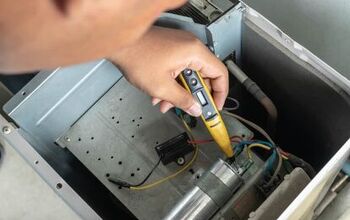Why Does The Chlorine In My Pool Disappear? (Find Out Now!)

A swimming pool is high maintenance, but it is worth the work for the luxury it affords in hot weather. It is critical that you consistently add chlorine and shock the water to kill germs. So, why is it that the chlorine in your pool simply disappears?
Your pool won’t hold Chlorine and it will disappear if you put too much stabilizer in the water. Chlorine will also disappear if the pH level is disturbed by rainwater or contaminants. Maintain a balanced pH level, skim your pool, and shock the pool regularly to prevent chlorine lock.
Chlorine lock is not the end of the world, and you can fix it if you dilute stabilizer or add chlorine. Follow along as we take a look at what makes the chlorine in your pool disappear and see what you can do to fix it.
Do You a Need Pool, Spa, or Hot Tub Contractor?
Get free, zero-commitment quotes from pro contractors near you.

Chlorine Disappearing In Pool
Disappearing chlorine is referred to as “chlorine lock”, and it can understandably frustrate homeowners with pools. You quickly find out if you have a chlorine lock when you test your water for chlorine levels. Pay attention to both the free chlorine and total chlorine levels to know whether or not your pool won’t hold chlorine.
Free vs. Total Chlorine
Free chlorine refers to the available chlorine that is able, or free, to kill germs. Combined chlorine refers to chlorine that has already sanitized germs and contaminants. Contaminates such as sweat, oils, germs, and even urine combine with chlorine and make it useless.
The total chlorine level refers to the sum of combined and free chlorine combined. Free chlorine is the most important level to pay attention to. You always want your free chlorine level to be higher than your combined chlorine level.
Try to keep your free chlorine level at 2.0-4.0 ppm to kill contaminants before they cause a problem. Your free and total chlorine levels should always come out to the same number. Uneven readings of free and total chlorine can indicate that you have chlorine lock, and you’ll need to adjust the level.
Causes of Chlorine Lock
Chlorine lock can make it less safe to swim in your pool, and it can be confusing. Your pool can lose chlorine because of everything from a pool party to a buildup of algae. Let’s take a look at some of the key causes of chlorine lock, and what you can do to prevent it.
Pool Water Evaporation
Excessive heat can cause pool water to evaporate, and that can affect the total chlorine level. Your pool water can evaporate whether it is sunny or not. Free chlorine will dissipate quickly on particularly hot days, and your pool won’t hold chlorine.
You can fix this problem if you use a pool cover when you aren’t swimming. Otherwise, you can consistently replenish lost water. Make sure that you continue to shock the pool and add chlorine when you fill it with water after water loss.
Pool Party
A pool party can cause a cloudy pool, and it can also cause chlorine to disappear. Multiple guests in your swimming pool can introduce more contaminants to the water. You run the risk of contaminates using up your free chlorine during a pool party, and those contaminants include:
- Skin oils
- Cosmetics
- Sweat
- Urine
It can be quite an undertaking for your free chlorine to handle excessive contaminants when you have guests over. Chlorine lock is common after a pool party, but it can happen after one as well. Make sure to shock your pool before and after pool parties, and replenish the water level.
Algae
Algae and similar contaminants, such as phosphates, can affect your pool’s total chlorine level. Excessive algae and organic compounds can cause inaccurate chlorine level test readings as well. Treat the algae with chlorine and an algaecide.
You can get algae out of a pool without using a vacuum with chemicals, and if you clean the filter and walls. Shock the water as well to prevent algae from coming back and wreaking havoc on your pool. Continually run your water circulation and pool filter system to prevent algae accumulation.
Too Much Stabilizer
Never add too much stabilizer to your swimming pool, or you may lock the chlorine. Too much of a good thing is bad, and too much stabilizer can render your chlorine useless. Pool stabilizer contains cyanuric acid and prevents chlorine from quickly dissipating.
Too much stabilizer can cause a buildup of cyanuric acid, and that can lower your free chlorine count. You can waste your chlorine if you use too much stabilizer, just like you can waste it with too little stabilizer. Pool stabilizer is also referred to as a conditioner, and it conditions the chlorine to stick around.
Allow the sun to evaporate some of your pool water, or simply drain some of it. Add more water to the pool to dilute the stabilizer, then test your free and combined chlorine levels. Continue to fill the pool with water until you dilute the stabilizer enough that chlorine won’t disappear.
Why Does a Pool Need Chlorine?
A pool needs chlorine to kill harmful germs and contaminants. It is possible to swim in a pool without chlorine, but you run the risk of illnesses such as swimmer’s ear. You are more likely to contract skin infections and illnesses such as pox-virus and papillomavirus when a pool doesn’t have chlorine.
It is common to experience nausea, diarrhea, shortness of breath, and fatigue from each of these conditions. Serious illness is more likely in public pools where many people swim if there is a pH imbalance or chlorine lock. Maintain a proper chlorine level and test the pool for free chlorine and total chlorine to avoid chlorine loss.
Your swimming pool also needs a stabilizer, or conditioner, to get the most out of your chlorine. Invest in chlorine testing strips to check your pool’s chlorine levels throughout the week. Find out if you can use a sand filter with a saltwater pool system.
Related Questions
Why does chlorine smell?
Chlorine smells strong when it combines with contaminants in the pool, such as skin oils and sweat. Other contaminants such as rainwater and urine can also release chloramines that create a distinct smell. Chloramines are volatile and the odor can signify that a dangerous gas has formed.
Does chlorine expire?
Yes, chlorine does expire, and it can go bad in just over a year. Liquid chlorine specifically can deteriorate and lose 50% of its strength in 5-7 months. Store your chlorine in an airtight container and in mild temperatures to help retain its potency.
Will chlorine kill algae?
Chlorine can kill algae, but it works best when you combine it with algaecide. The combination of algaecide and chlorine can kill algae, but your filter system will have to do a lot of the work as well. Treat your pool with an algaecide in emergencies and keep your filter clean so that it can prevent algae accumulation.
How do I raise the free chlorine in my pool?
Add chlorine pucks or liquid chlorine to your pool to raise the free chlorine level. You can also boost the free chlorine level if you shock your pool. Let some water out of your pool, refill it, add chlorine, and shock the pool for the best results.
Do You a Need Pool, Spa, or Hot Tub Contractor?
Get free, zero-commitment quotes from pro contractors near you.

Summing It Up
The chlorine in your pool may disappear if you add too much stabilizer or conditioner to the water. Stabilizer contains cyanuric acid, and too much of it can reduce the amount of free chlorine that can treat germs and contaminants in your pool. Let some of the water out of the pool, refill it, and add chlorine pucks or liquid chlorine.
Add shock to the pool to raise the free chlorine level in the water and prevent waterborne illness. Your pool can also go into chlorine lock if you have a pool party with many swimmers in the water at once. Extra bodies in a pool can add contaminants such as skin oils, sweat, urine, cosmetic makeup, and germs.
Pay attention to your pool’s water level on hot days as excess heat can make the water evaporate. Add more water to your pool, test it for free chlorine, and add more chlorine or shock if it is low. Use this guide to diagnose the cause of and fix your pool’s chlorine lock.

Nick Durante is a professional writer with a primary focus on home improvement. When he is not writing about home improvement or taking on projects around the house, he likes to read and create art. He is always looking towards the newest trends in home improvement.
More by Nick Durante



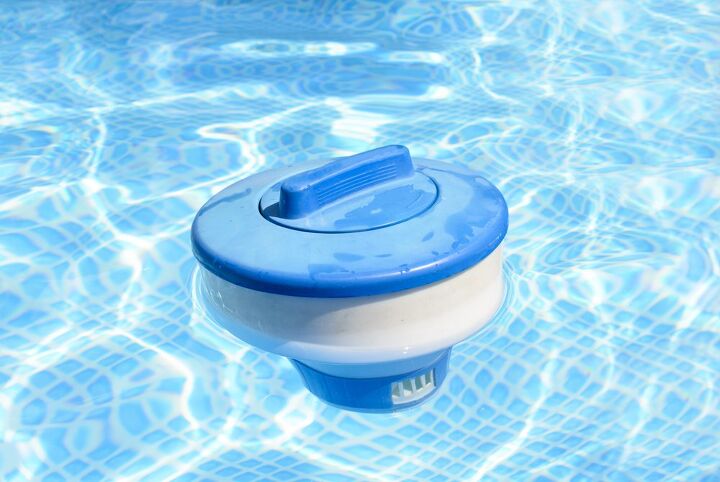



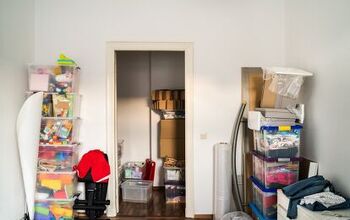





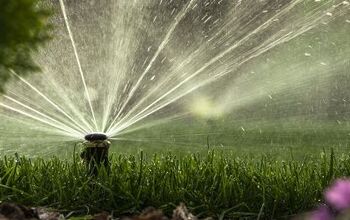
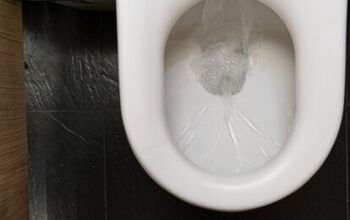
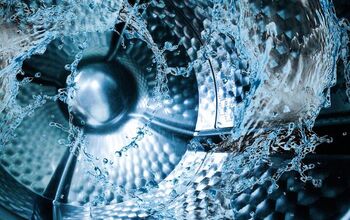
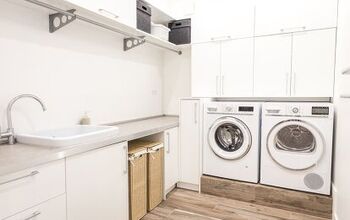
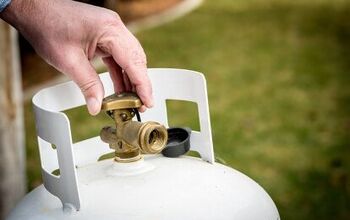
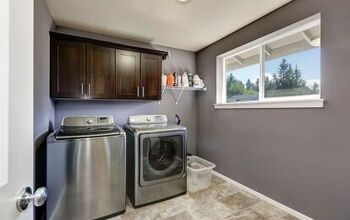
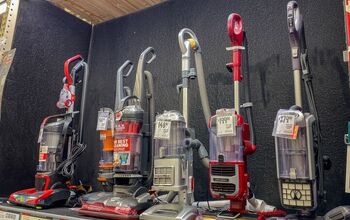


![Standard Dining Room Table Dimensions [for 4, 6, 8, 10 and 12 People]](https://cdn-fastly.upgradedhome.com/media/2023/07/31/9074335/standard-dining-room-table-dimensions-for-4-6-8-10-and-12-people.jpg?size=350x220)
![How To Reset A Whirlpool Cabrio Washer [In 5 Easy Steps!]](https://cdn-fastly.upgradedhome.com/media/2023/07/31/9076531/how-to-reset-a-whirlpool-cabrio-washer-in-5-easy-steps.jpg?size=350x220)

